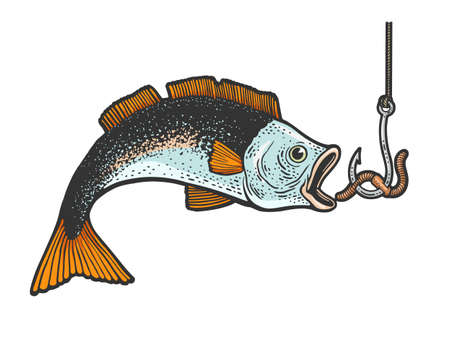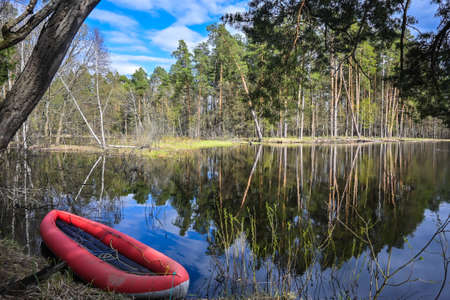1. Who Needs a Texas Fishing License?
If youre planning to fish in Texas, whether youre casting a line in a lake, river, or along the Gulf Coast, youll likely need a fishing license. But there are some exceptions depending on your age, residency status, and specific circumstances.
Texas Residents vs. Non-Residents
Texas offers different licensing requirements for residents and non-residents. Heres a quick breakdown:
| Status | License Required? | Notes |
|---|---|---|
| Texas Resident (Age 17–64) | Yes | Must purchase a resident fishing license |
| Texas Resident (Under 17) | No | Minors are exempt from license requirements |
| Texas Resident (65+) | Yes* | *Eligible for discounted Senior Resident licenses |
| Non-Resident (Age 17+) | Yes | Must purchase a non-resident fishing license |
| Non-Resident (Under 17) | No | Exempt regardless of residency |
Exemptions From Needing a License
You Don’t Need a Fishing License If You Are:
- A Texas resident born before January 1, 1931 (automatically exempt)
- A person with an intellectual disability fishing under supervised conditions and carrying proper documentation
- A resident fishing in Texas state parks — as long as youre fishing from shore or from a pier within the park (no boat fishing unless you have a license)
Free Fishing Day
Every year on the first Saturday in June, Texas offers “Free Fishing Day.” On this day, anyone can fish without a license anywhere in the state.
Fishing on Private Property
If youre fishing completely within private property boundaries—such as a private pond—you dont need a license. But once you cast into public waters, even if youre standing on private land, you must have one.
Quick Tip:
Your license type must match your method of fishing. For example, if youre using saltwater gear or targeting saltwater species, youll need the appropriate endorsement in addition to your standard license.
This section gives you the basics of who needs a Texas fishing license and when you might be exempt. Understanding these rules helps you avoid fines and ensures youre fishing legally and responsibly in the Lone Star State.
2. Types of Fishing Licenses and Packages
Texas offers several types of fishing licenses and packages to fit the needs of all kinds of anglers, whether youre planning a one-day trip or youre a lifelong fisherman. Understanding the different options helps ensure youre fishing legally and getting the most value for your money.
Freshwater, Saltwater, and All-Water Packages
Fishing in Texas can mean casting a line into a quiet freshwater lake or heading out to the coast for saltwater species. The type of license or package you need depends on where you plan to fish.
| Package Type | Includes | Best For |
|---|---|---|
| Freshwater Package | Allows fishing in lakes, rivers, and other inland waters | Anglers who fish only in freshwater areas |
| Saltwater Package | Includes saltwater fishing and the required Red Drum Tag | Coastal anglers targeting saltwater species |
| All-Water Package | Covers both freshwater and saltwater fishing; includes Red Drum Tag | Anglers who want access to all public waters in Texas |
License Duration Options
Texas makes it easy to choose how long you want your license to be valid. Whether youre just visiting for a weekend or live here year-round, theres an option that works for you.
| License Type | Valid For | Ideal For |
|---|---|---|
| Annual License | Valid from purchase date until August 31 each year | Residents and regular anglers in Texas |
| Short-Term License | Available for 1-day or multiple consecutive days | Visitors or occasional anglers |
| Lifetime License (Residents Only) | No expiration – valid for the holder’s lifetime | Dedicated Texas residents who fish often |
A Quick Tip:
If you’re planning to fish both inland and coastal waters during your trip, the All-Water Package is usually the most convenient and cost-effective choice.
You Might Also Need:
- Red Drum Tag: Required when keeping certain saltwater species like red drum over 28 inches.
- Add-ons: Depending on what youre fishing for, additional endorsements or tags might be needed.
No matter which license or package you choose, make sure it’s valid before you hit the water. Fishing without the correct license can result in fines or penalties from Texas Parks & Wildlife.

3. How to Buy a Fishing License in Texas
If youre planning to fish in Texas, youll need a valid fishing license. Luckily, getting one is pretty straightforward, and there are several ways to purchase it depending on whats most convenient for you. Whether you prefer going online or visiting a local store, the state makes it easy.
Where to Buy a Texas Fishing License
You have multiple options when it comes to buying a fishing license in Texas. Heres a quick look at the different places where you can get one:
| Purchase Method | Details |
|---|---|
| Online | You can buy your license through the official Texas Parks and Wildlife Department (TPWD) website. Its available 24/7 and you can print a temporary license immediately. |
| Retail Locations | Over 1,700 retail outlets across Texas sell fishing licenses. These include sporting goods stores like Academy Sports + Outdoors, Walmart, local bait shops, and other approved vendors. |
| By Phone | Call TPWD at (800) 895-4248 during business hours to buy your license by phone. A handling fee may apply, and youll receive a temporary authorization number to fish right away. |
| TPWD Offices | You can also visit any Texas Parks and Wildlife Department law enforcement office or headquarters to purchase your license in person. |
What You’ll Need
Before purchasing your license, make sure you have the following information ready:
- A valid form of identification (like a drivers license or state-issued ID)
- Your Social Security Number (if youre buying for the first time)
- Payment method (credit/debit card if online or by phone; cash or card in-store)
Helpful Tip:
If you’re using the online option, consider creating an account on the TPWD website. This makes it easier to renew your license next year and keeps track of all your purchases.
Digital vs Physical Licenses
When you buy online or by phone, you’ll receive a confirmation number that acts as a temporary license until your physical copy arrives in the mail. You can also choose to carry a digital copy on your smartphone using the free Outdoor Annual app or the My Texas Hunt Harvest app provided by TPWD.
Quick Links:
No matter how you choose to buy it, having your fishing license ready means more time on the water and less worry about fines or legal trouble. Happy fishing!
4. Key Fishing Laws and Regulations in Texas
If youre planning to fish in Texas, its essential to understand the rules that keep our waters healthy and fish populations thriving. The Texas Parks and Wildlife Department (TPWD) enforces these regulations to ensure everyone can enjoy fishing safely and responsibly. Heres a breakdown of the most important fishing laws you need to know when casting your line in Texas.
Catch Limits
Certain fish species have daily bag limits, meaning theres a maximum number of fish you can keep each day. These limits help prevent overfishing and ensure sustainable populations for future anglers.
| Fish Species | Daily Bag Limit |
|---|---|
| Largemouth Bass | 5 |
| Channel Catfish | 25 |
| Crappie (White or Black) | 25 (combined) |
| Red Drum (Redfish) | 3 |
| Speckled Trout | 5 (in most regions) |
Size Limits
Certain fish must meet minimum or slot size requirements before you can keep them. This ensures younger fish get the chance to grow and reproduce.
| Fish Species | Minimum Size (inches) | Special Rules |
|---|---|---|
| Largemouth Bass | 14″ | N/A |
| Red Drum | 20″ | No more than one over 28″ |
| Speckled Trout | 15″ | No more than one over 25″ |
| Cobia (Ling) | 40″ | N/A |
| Paddlefish | N/A | Catching is prohibited unless permitted for research or restoration |
Tackle and Gear Restrictions
The type of gear you use matters in Texas waters. Some equipment is restricted or prohibited altogether depending on where and what youre fishing for.
- No more than 100 hooks per angler when using trotlines or juglines.
- Nets such as seines, cast nets, and dip nets are allowed for catching bait only, not game fish.
- Spear guns, bow fishing, and handfishing are allowed in some areas but have specific rules—always check local regulations first.
- No explosives, poisons, or electrical devices are allowed for taking fish.
Laws by Water Type: Saltwater vs. Freshwater
The rules can vary between saltwater and freshwater bodies. Always confirm whether you’re in inland or coastal waters, as this affects bag limits and legal fishing methods.
Saltwater Fishing Regulations Include:
- A valid saltwater endorsement on your fishing license.
- Differing size/bag limits for species like red snapper, flounder, or shark.
- No gigging flounder during certain spawning months (typically November).
Freshwater Fishing Regulations Include:
- A freshwater endorsement if not covered under your all-water license.
- Sensitive zones like community fishing lakes may have special restrictions or catch-and-release-only rules.
- Certain river systems have seasonal rules for paddlefish or alligator gar.
Enforcement and Penalties
The TPWD takes violations seriously. Game wardens patrol regularly, especially during peak seasons. If youre caught breaking the rules, you could face fines, confiscation of gear, or even loss of fishing privileges. Always carry your license and follow posted signs at lakes, rivers, piers, and coastal access points.
If youre unsure about any regulation, visit the official Texas Parks & Wildlife website, or download their mobile app for real-time updates while youre out fishing.
The key to a great fishing trip in Texas is knowing the rules before you go. Respecting these guidelines helps protect our natural resources so we can all keep enjoying the Lone Star State’s incredible fishing spots year after year.
5. Catch-and-Release and Conservation Rules
Fishing in Texas isnt just about the thrill of the catch—its also about protecting our waters for future generations. The Texas Parks and Wildlife Department (TPWD) has several conservation rules in place to make sure fish populations stay healthy and habitats remain protected. Whether youre a local angler or visiting from out of state, its important to understand and follow these rules.
Responsible Angling Practices
Practicing responsible angling helps minimize harm to fish and their environments. Here are some key tips:
- Use barbless hooks: Easier to remove and less damaging to fish.
- Handle fish gently: Wet your hands before touching them to protect their slime coat.
- Keep fish in the water: Especially if you plan to release them.
- Release quickly: The less time out of water, the better chance they survive.
Special Regulations for Protected Species
Some fish species in Texas are protected due to low population numbers or habitat concerns. Here are a few examples:
| Species | Status | Regulation |
|---|---|---|
| Guadalupe Bass | State Fish / Conservation Priority | Certain rivers have catch-and-release only rules |
| Paddlefish | Threatened Species | No harvest allowed; all must be released immediately |
| Alligator Gar (certain areas) | Limited Harvest Zones | Special permits required; limited harvest per year |
Designated Conservation Areas
Some lakes, rivers, and coastal zones have specific regulations aimed at conservation. These may include gear restrictions, seasonal closures, or special limits. Always check local signage or TPWD’s website before fishing in these areas.
Examples of Designated Areas:
- Devils River State Natural Area: Strict catch-and-release policies for native species like smallmouth bass.
- Lower Laguna Madre: Sensitive seagrass beds—wade fishing is encouraged over boat anchoring.
- Caddo Lake WMA: Specific rules for crappie during spawning season to prevent overharvesting.
Why Conservation Matters
The goal of these rules is simple: keep Texas’ waters full of life. Following conservation guidelines helps ensure that both todays anglers and future generations can enjoy the incredible fishing opportunities across the Lone Star State.
6. Penalties for Fishing Without a License
Fishing in Texas without the proper license or ignoring fishing regulations can lead to serious consequences. The Texas Parks and Wildlife Department (TPWD) takes these rules seriously to protect the state’s natural resources, and violators can face fines, court appearances, and even criminal charges in some cases.
Common Violations and Their Consequences
If youre caught fishing without a valid license, or if youre breaking other fishing laws—like exceeding bag limits or fishing in restricted areas—you could be issued a citation. Heres a breakdown of common infractions and potential penalties:
| Violation | Potential Fine | Other Consequences |
|---|---|---|
| Fishing without a valid license | $130–$500 | Court appearance may be required; possible misdemeanor charge |
| Exceeding daily bag limit | $25–$500 per fish over the limit | Confiscation of catch; possible court costs added |
| Using illegal gear or bait | $100–$500 | Equipment may be seized by authorities |
| Fishing in restricted areas or during closed seasons | $100–$500 | Possible criminal charges depending on the situation |
| Failing to show license when asked by a game warden | $25–$200 | Ticket issued; must prove you had a valid license at time of request to avoid further penalties |
License Deferral Options and Exceptions
If youre cited for not having your license but actually had one at the time, you may have the option to present proof in court and get the fine reduced or dismissed. However, this usually requires quick action and possibly paying administrative fees.
First-Time Offenders vs. Repeat Violators
The TPWD often considers whether its your first offense. First-time violators may receive lighter penalties or deferred adjudication, while repeat offenders are more likely to face steeper fines or legal repercussions.
Avoiding Trouble with Game Wardens
The best way to avoid any trouble is simple: always carry your valid fishing license, follow local regulations, and stay updated on seasonal rules. Game wardens patrol lakes, rivers, coastlines, and parks regularly—and they have full authority to inspect your catch, gear, and license.
Staying informed and compliant helps protect Texas fisheries and keeps your outdoor adventures hassle-free.


